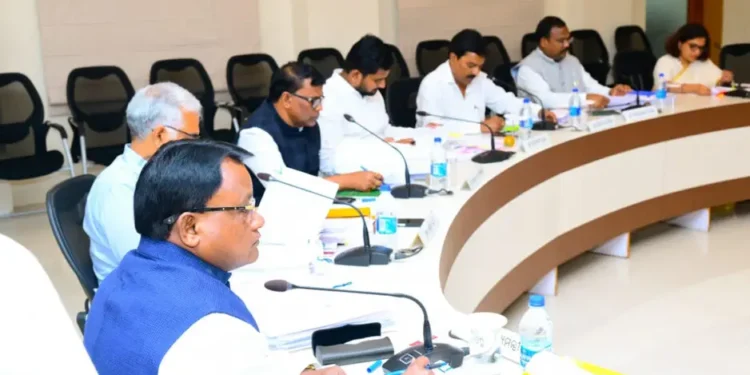Bhubaneswar- The Odisha Cabinet, under the leadership of Chief Minister Mohan Charan Majhi, has approved thirteen proposals covering eleven departments, showcasing the government’s focused approach to regional development, infrastructure improvement, and administrative reforms.
One of the most impactful decisions is the formation of a new police district in Rairangpur, under Mayurbhanj district, aimed at improving law enforcement and administrative efficiency in the region. In another significant move, the government approved the rollout of the Emergency Response Support System (ERSS), which will create 4,195 new posts to boost the state’s capacity in handling emergency services more effectively.
In the education sector, the Cabinet has taken a major step to support rural education by deciding to cover hostel fees for students enrolled in Odisha Adarsha Vidyalayas (OAVs). In a crucial Cabinet meeting chaired by Chief Minister Mohan Charan Majhi, a proposal was approved to waive hostel charges for students residing in 455 hostels across the state.
The initiative will benefit nearly 45,000 students studying in OAVs—schools set up to provide high-quality English-medium education at the secondary level to children from rural areas. Odisha currently has 314 OAVs, each equipped with separate hostels for boys and girls. While 173 of these hostels under the Kasturba Gandhi Balika Vidyalaya scheme are already funded through the Samagra Shiksha program, students in the remaining 455 hostels have been paying Rs2,000 per month as boarding fees.
With this new decision, the state government will now shoulder the hostel costs for these students, ensuring that financial constraints do not hinder access to quality education. The move is expected to cost the exchequer Rs349.20 crore over a five-year period from 2025 to 2030.
To accelerate urban development, the Cabinet has greenlit the Samruddha Sahar Yojana, with a budget of Rs4,879.30 crore. This visionary scheme is designed to transform cities across Odisha and aligns with the broader goal of a developed Odisha by 2036.
The Cabinet has also taken steps to strengthen the industrial ecosystem with the Second Amendment to the Odisha Semiconductor Manufacturing and Fabless Policy, introducing improved incentive structures to attract investment in this high-tech sector.
Administrative efficiency is also on the reform agenda, with approval granted for amendments in the Odisha Revenue Service recruitment rules. Additionally, changes have been made in the Odisha Factories and Boilers Inspection Service, requiring Assistant Directors to qualify a departmental exam before confirmation in service.
These wide-ranging decisions underline the Odisha government’s multi-sectoral focus and its intention to bring balanced growth, better governance, and modern infrastructure to every corner of the state.






